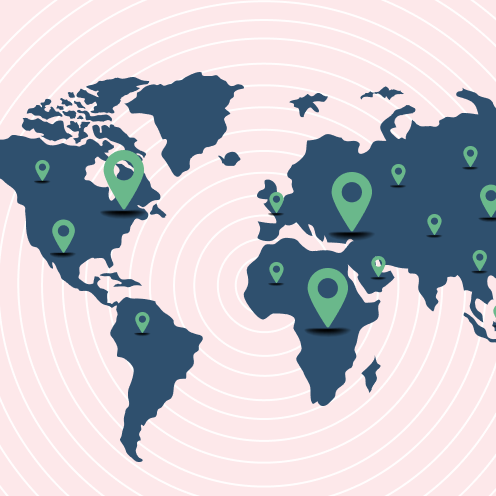- News
- World
- Africa
Millions of people, particularly in African countries, have lost access to drug treatments, prevention and testing putting the idea of ending the Aids pandemic by 2030 out of reach
Rachel SchraerGlobal Health Correspondent Tuesday 25 November 2025 13:10 GMTComments
 CloseDeath Sentence: The real cost of Trump’s aid cuts on HIV
CloseDeath Sentence: The real cost of Trump’s aid cuts on HIV
On The Ground newsletter: Get a weekly dispatch from our international correspondents
Get a weekly dispatch from our international correspondents
Get a weekly international news dispatch
 Email*SIGN UP
Email*SIGN UPI would like to be emailed about offers, events and updates from The Independent. Read our Privacy notice
The UN’s Aids agency (UNAIDS) is forecasting millions more HIV infections globally by 2030 because of funding cuts, just at the moment new drugs should have been putting the end of the pandemic in reach.
In a major report published 10 months after Donald Trump cancelled three-quarters of the world’s funding for HIV at a stroke.
At first, the report said, “clinics were forced to shut their doors, essential frontline health workers were furloughed, and community programmes reaching the most vulnerable people stopped”.
While the US ultimately restored some funding for HIV treatment, UNAIDS has documented how hard-won efforts to prevent new infections have nevertheless been hollowed out in the past year. The agency has projected the reduction in prevention services in particular would result in 4 million more people with HIV by 2030.
One woman living with HIV in Mozambique told UNAIDS: “It feels like the ground has been ripped out from under our feet. Before, we had places to go, people to talk to, and we knew someone cared.”
Another woman in South Africa, working in the sex industry who lost access to antiretroviral drugs for four months said: “The only thing I could think of was my kids, and that I am going to die”.
The Independent has already uncovered several deaths linked to the disruption of HIV treatment in Uganda, Senegal and Zimbabwe.
In an interview with The Independent, UNAIDS head Winnie Byanimya described lenacapavir, a new twice-yearly injection which prevents almost 100 per cent of HIV infections, as a “miracle” which could “drive down the infections to zero” and help end the Aids pandemic. But she stressed this opportunity was now in jeopardy because of a failure to fund enough doses at a low enough cost.
UNAIDS’ report said funding cuts had “devastated HIV prevention services” and meant access to medicines needed to end the Aids pandemic was "declining at the very moment when demand should be expanding”.
While lenacapavir is new, the use of a daily pill to prevent HIV, known as pre-exposure prophylaxis (PrEP) is already well-established in many countries. But roughly 2.5 million people who used PrEP in 2024 lost access to the medicine this year because of donor cuts - as much as two-thirds of the people receiving it in some countries, according to UNAIDS.
Specialist programmes for vulnerable groups including gay men, trans communities and sex workers - who accounted for half of new HIV infections in 2024 - have been particularly affected by funding cuts. In Kenya, PrEP programmes supporting the groups at highest risk from HIV have virtually all stopped, at the same time incidents of harassment and attacks have soared.
“We have seen an increase in threats,” says Jeffrey Walimbwa of Kenyan LGBT+ community organisation in Kenya, Ishtar MSM. “This is an attempt to erase our existence.”
In Zimbabwe, tailored HIV services tailored to these communities have “effectively collapsed” while in Uganda, approaching half of similar programmes have closed.
The only way to end Aids is by preventing new infections. Yet UK-based HIV charity, Frontline Aids, said the hardest hit countries in Africa had lost between 30 and 70 per cent of their HIV prevention budgets. In a separate report, the charity found that in Nigeria, oral PrEP use had fallen by more than 85 per cent while in Kenya it had halved.
Meanwhile, HIV testing - another important way to prevent infections - also fell significantly in a number of countries, along with tests to determine how much of the virus is in someone’s blood. Making sure people living with HIV know their status and that the virus is suppressed to undetectable levels in their blood stops them from passing the virus on.
US funding has focused almost exclusively on HIV prevention for pregnant and breastfeeding women. But even here, the cuts are being felt. UNAIDS found that in Ghana, 30 per cent fewer pregnant women living with HIV received antiretroviral medicines to both protect them and prevent them from passing the infection on to their children in the first half of 2025 compared with the year before.
And despite promises from the US to protect life-saving HIV treatment, in some countries people are nevertheless losing access to the drugs that keep them alive, as well as stopping them from passing the virus on. In Mozambique, the number of people receiving antiretroviral treatment fell by around 40 per cent this year, Frontline Aids said.
It’s not only bad news. Many countries receiving foreign aid to pay for their HIV services have been able to take on funding some of them with national budgets - though not all.
Twenty-six countries looked at in the UNAIDS report have said they will increase domestic spending on HIV care, and some like Nigeria and South Africa have already done so.
But, the UN agency said, most low-income countries, especially those with the most HIV cases, did not have the means to fully fill in the gap.
This article is part of The Independent’s Rethinking Global Aid project
More about
Rethinking Global AidHIVDonald TrumpUNAIDSJoin our commenting forum
Join thought-provoking conversations, follow other Independent readers and see their replies
Comments

